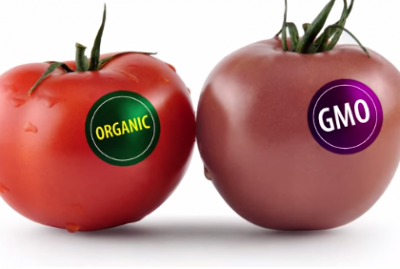
Ronnie Cummins, founder of the Organic Consumers Association (OCA), is a long-time leader in promoting labeling for genetically engineered (GE) foods. About four years ago, we joined forces to develop the Health Liberty alliance, with the aim to push this agenda forward.
Many may know of my involvement with GMO labelling but not realize that it was Ronnie who suggested we make use of state ballot initiatives—an option that was not widely known or utilized—to get genetically modified organisms (GMOs) labeled in the US.
I donated a significant sum to the first ballot initiative in California in 2012, which inspired others to donate to the campaign as well. We technically "lost" the vote, not only in California, but also in subsequent ballot initiatives in Washington (2013) and Oregon (2014).
But we are winning the war, as these labeling initiatives have raised a considerable amount of public awareness among people who didn't even realize there were genetically modified organisms (GMOs) in their food.
With each ballot initiative we also got closer and closer to winning. We lost by a mere 800 votes or so in Oregon last year. In the final analysis, the only reason we lost was because industry spent well over 100 million dollars against those initiatives, and succeeded in confusing enough voters to where they narrowly won.
90 Percent of Americans Now Want GMO Labeling
Through the publicity generated from those ballot initiatives, millions of Americans were alerted to the fact that there's something in their food they don't know anything about, and according to the latest poll, over 90 percent of the public definitely do want to know what's in their food.
"The problem is that the federal government, and certainly corporate agribusiness and Big Food companies, still don't want us to know, because they know that once we are informed about what's in our food, they're going to have to change," Ronnie says.
"Lately, big food companies like McDonalds have backed down saying, 'I guess we won't use genetically engineered potatoes after all for our French fries.' We've seen Tyson say, 'Well, I guess we will get these antibiotics out.'
I think we're right on the cusp of a new era where consumers are starting to understand that we have a right to know what's in our food. We better know what's in our food! We better pay attention to that because it's impacting our health in a very serious way.
Right now we have an epidemic of chronic disease across the country. It's getting worse and worse and it's directly related to toxins in the environment, our food, and our water."
We May Be Losing Battles, But We're Winning the War
Ever since GE foods and crops came on the market a little over two decades ago, GE crops have spread all over the country, and GE soybeans, corn, cottonseed oil, canola, and sugar beets are now in most of the non-organic processed foods you find in supermarkets or grocery stores.
This despite the fact that, from the very beginning, there were suspicions they might not be safe. Today, such misgivings have grown even stronger, as the pesticides used on them have been found to be far more hazardous than previously thought.
The International Agency for Research on Cancer (IARC), which is the research arm of the World Health Organization (WHO), recently reclassified glyphosate—the active ingredient in Monsanto's Roundup—as a "probable carcinogen" (Class 2A).
Recent research has also found that Roundup (the actual formulation of Roundup, not just glyphosate in isolation) alters disease-causing bacteria's response to commonly used antibiotics, including tetracycline and ciprofloxacin, thereby raising resistance to drugs used in medicine.
"But we could never get the government to pay attention, because the government is obviously more interested in what the chemical industry and the big agricultural companies have to say than what their constituents have to say," Ronnie notes.
"Four years ago, we decided to utilize this hundred-year-old tactic, the state ballot initiative process, to go around the federal government. Basically, put it to a vote of the citizens...
Because we knew... that once these genetically engineered foods and food ingredients are labeled, consumers don't want to buy them, grocery stores won't sell them, restaurants won't serve them, and farmers won't grow them. If we can't get the government to act, we'll have to act as our own government.
This battle for the right to know and the right to choose is not just about genetic engineering; it's about our entire food supply and really our entire environment.
Things like bisphenol A (BPA) in plastic bottles and flame retardants in furniture, these are all part of the same sad situation, which is that corporations with the connivance of federal regulators and politicians have cut corners with safety and with environmental sustainability in order to make more money.
It's our job as consumers to stand up for our rights. If the federal government has become completely beholden to the special interest, we're going to have to use whatever tool we can.
Whether it's a local county ban on a practice like a factory farm or growing genetically engineered crops, or whether it's a state law as Vermont passed last May 2014 to require labeling of genetically engineered foods."
To help you avoid GE foods and the pesticides their sprayed with, I've partnered with Naturally Savvy to create a fantastic Non-GMO Challenge that can help you identify GMOs on a product label and remove them from your diet.